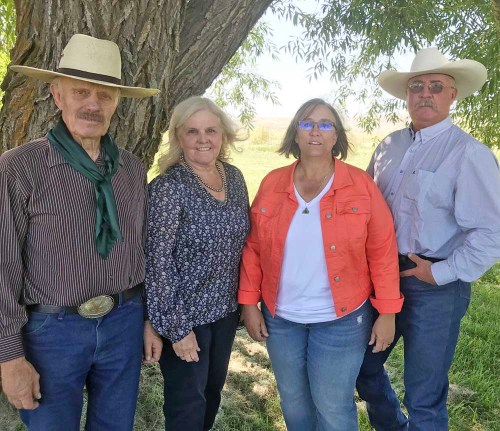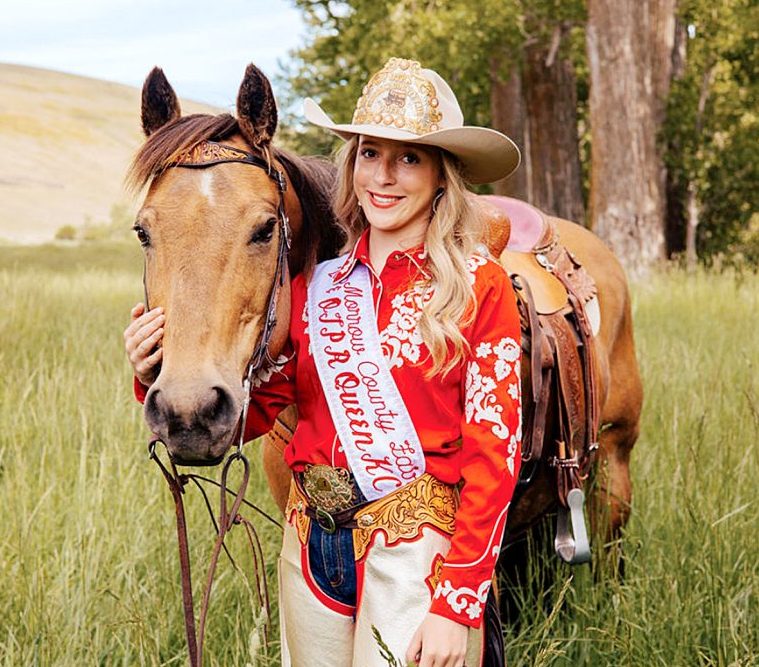Oregon ranchers lose appeal over ‘grazing priority’
Published 3:00 pm Tuesday, September 7, 2021

- From left to right, Mike Hanley and his wife, Linda, with daughter Martha Corrigan and her husband, John, at the family’s ranch near Jordan Valley, Ore. The U.S. Supreme Court has refused to review a ruling that determined the family lost its grazing priority to access about 30,000 acres of public allotments.
PORTLAND — An Oregon ranch family has failed to convince a federal appeals court to preserve their property’s “priority” to graze livestock on public allotments.
The 9th U.S. Circuit Court of Appeals has ruled that ranchers automatically lose the “grazing preference” for their property upon the expiration of their permit to release livestock onto federal allotments.
Trending
The ruling has broad implications for Western ranchers, since it rejects legal arguments that a private “base” property must retain its grazing preference even if a grazing permit isn’t renewed.
The 9th Circuit’s decision indicates the concept of “grazing priority” doesn’t mean much anymore, said Mike Hanley, a rancher involved in the litigation.
“It could be the death knell of the Taylor Grazing Act,” he said, referring to the federal statute that regulates public land livestock allotments.
In practical terms, the decision will make it tougher for ranchers to transfer private property, including to family members, without encountering heavy regulatory burdens, he said.
The case demonstrates the difficulty of litigating against the federal government, particularly in the 9th Circuit, Hanley said. “In the long term, you’re going to lose.”
Grazing preferences provide private ranch properties with the top priority to obtain grazing permits on neighboring federal allotments.
Trending
Within the livestock industry, such preferences are crucial to the financial value of private ranches. They’re also considered to stabilize the long-term connection between ranchers and surrounding federal lands.
After the U.S. Bureau of Land Management refused to renew their grazing permit, Mike and Linda Hanley of Jordan Valley leased their 1,900-acre private ranch to their daughter and son-in-law, Martha and John Corrigan.
However, in 2017 the BLM refused to issue the Corrigans a permit to graze cattle on about 30,000 acres of nearby federal allotments across the border in Idaho.
The agency decided the Oregon base property had lost its grazing preference when the Hanley permit wasn’t renewed, which both couples challenged in federal court.
The BLM’s decision raised an alarm among ranch organizations, such as the Owyhee Cattlemen’s Association and Idaho Cattlemen’s Association.
The groups argued the agency’s interpretation undermines due process rights and “threatens to subvert the entire system of public land livestock grazing.”
The 9th Circuit now has upheld a court ruling that determined BLM’s actions were consistent with the Taylor Grazing Act and the Federal Land Policy and Management Act, which govern public allotments.
“After a permit expires,” the 9th Circuit said, “a former permittee does not retain any preference to stand first in line for a future permit.”
The Hanleys and Corrigans are “disappointed” in the ruling and believe the 9th Circuit “missed the mark,” though they’ve not yet discussed the next steps, said Alan Schroeder, the family’s attorney.
The 9th Circuit said its ruling leaves open the possibility that a new landowner may still be entitled to a grazing preference after buying base property from a rancher whose permit was terminated.
If that’s the case, it’s unclear why Hanley and Corrigan’s situation is being treated differently, since the permit wasn’t renewed without being explicitly canceled, Schroeder said.
“Either the preference is attached to base property or it is not. You cannot have it both ways,” he said. “The Ninth Circuit erroneously claims you can have both ways, in my view.”
According to the ruling, Congress would have made clear if the relevant statutes required a separate cancellation procedure for grazing preferences.
“Ranchers fail to offer any textually grounded explanation of how a former permittee whose permit expired and was not renewed for bad behavior could exercise a preference,” the 9th Circuit said.
The idea that a grazing preference remains attached to the base property as a “stand-alone interest” is legally incorrect, since BLM’s “discretion over public lands supersedes any preference right,” the ruling said.
The government rightly concluded that “with no valid permit, there was no preference to transfer, irrespective of who controlled the base property,” the 9th Circuit said.
If base properties had a “non-expiring” priority to new permits, that would contravene the Taylor Grazing Act’s purpose of protecting public lands from overgrazing and soil deterioration, the ruling said.
“It would empower those private parties who have acted in a manner that causes damage to the lands to reserve certain grazing privileges, even after the agency has determined that their bad behavior justifies denying them the privileges of receiving new grazing permits,” the 9th Circuit said.









